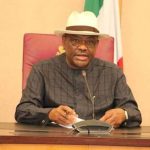The Kaduna State Government has commenced screening of youths for community policing as part of its efforts to tackle the general insecurity in the state.
The Acting Governor, Dr. Hadiza Balarabe, chaired a meeting which is part of the consultations with representatives from the three senatorial districts on how to address insecurity on Monday.
The meeting had senators, members of the House of Representatives, State House of Assembly members and chairmen from the 15 local government areas in Kaduna North and Kaduna Central senatorial zones as well as District Heads in attendance.
Speaking with journalists after the meeting, the senator representing Kaduna Central zone, Malam Uba Sani, said the meeting aimed at looking at the security problem facing Kaduna, saying that insecurity needs to be tackled collectively.
Uba Sani assured that he was working on a bill to restructure police architecture, to meet contemporary challenges, adding that if it scales through, the bill would create state police.
According to Senator Sani, they will involve the community in tackling insecurity in the state, through traditional and political leaders, assuring that the governor is determined to end insecurity in the state.
Also speaking, member representing Kajuru/Chikun federal constituency at the National Assembly, Hon. Yakubu Umar Barde, commended Governor Nasir El-Rufai for his efforts in tackling insecurity.
Hon Barde argued that insecurity affects everyone in the society, irrespective of political affiliations, ethnicity or religious beliefs.
He explained that the Commissioners of Local Government and Internal Security had briefed the meeting, saying that the State governors have no control over security.
On his part, the Commissioner of Local Government, Alhaji Ja’afaru Sani, said state would commence thorough screening of selected youths by their district heads for community policing to fight insecurity.
Commissioner of Internal Security and Home Affairs, Samuel Aruwan, who made a presentation on government’s efforts and steps in tackling insecurity, said government would continue to engage traditional, community, and political leaders to end it.





